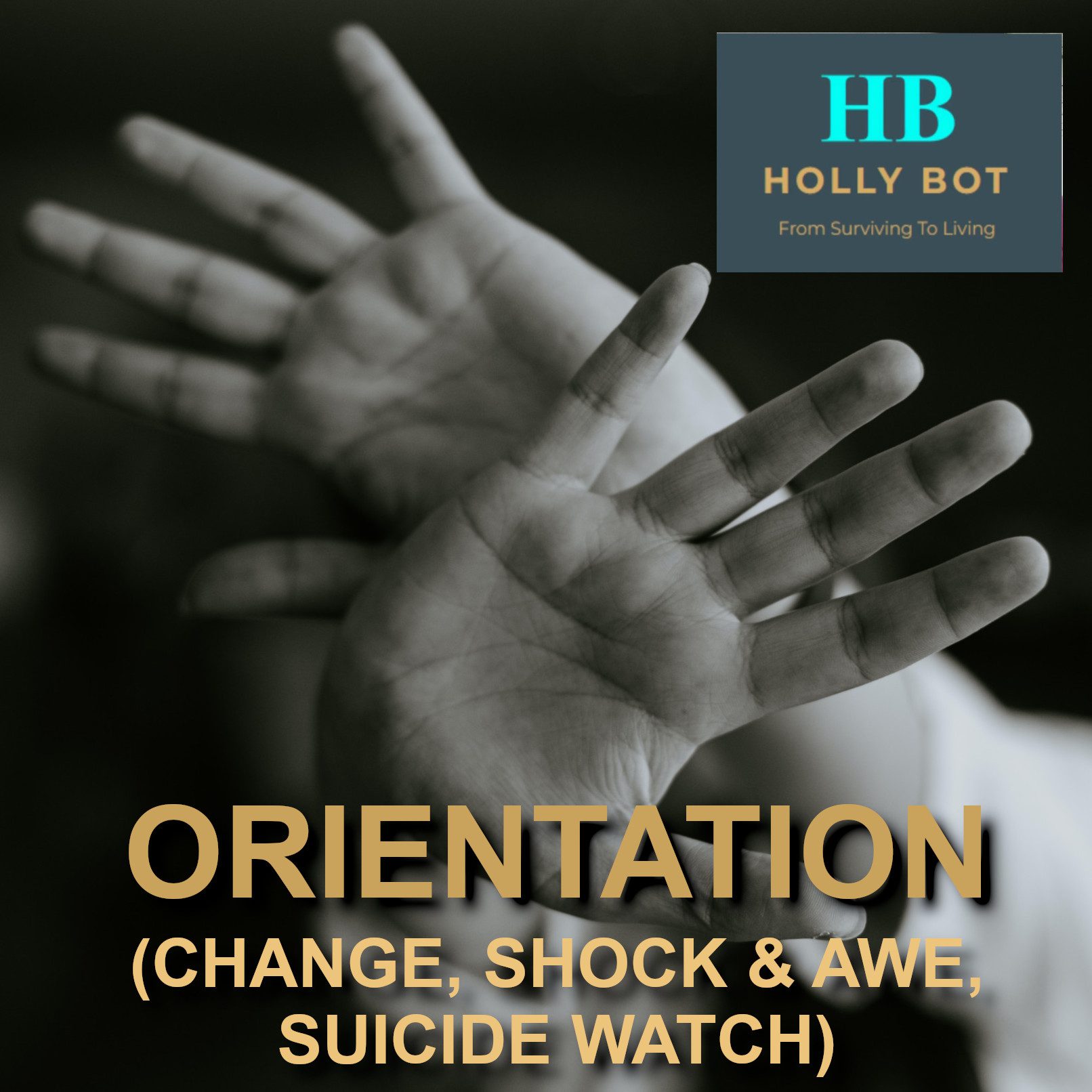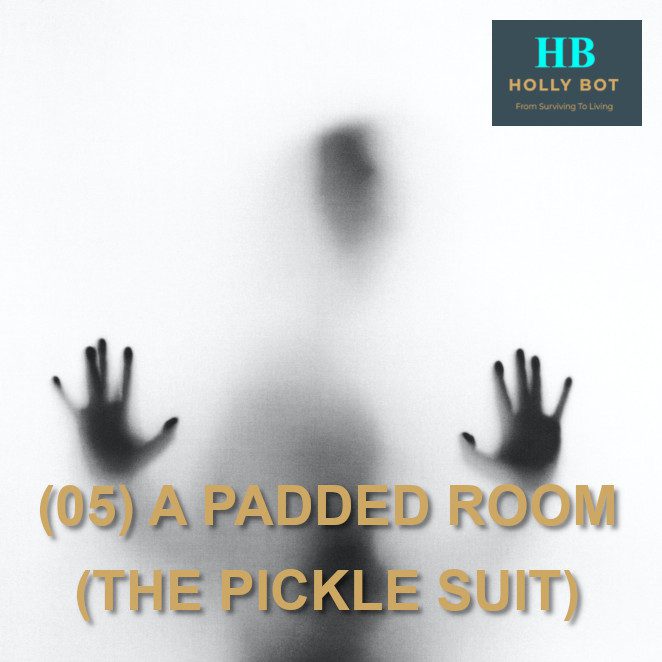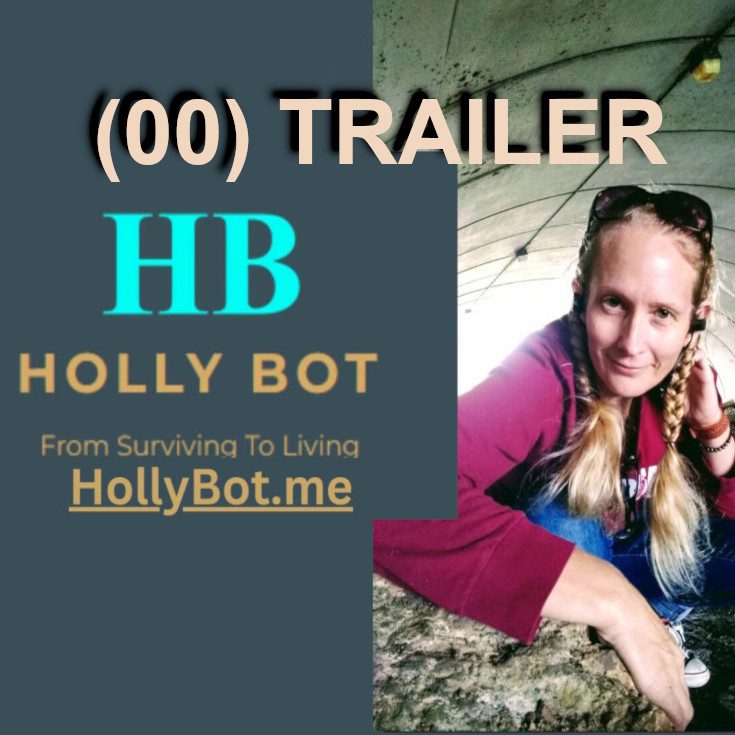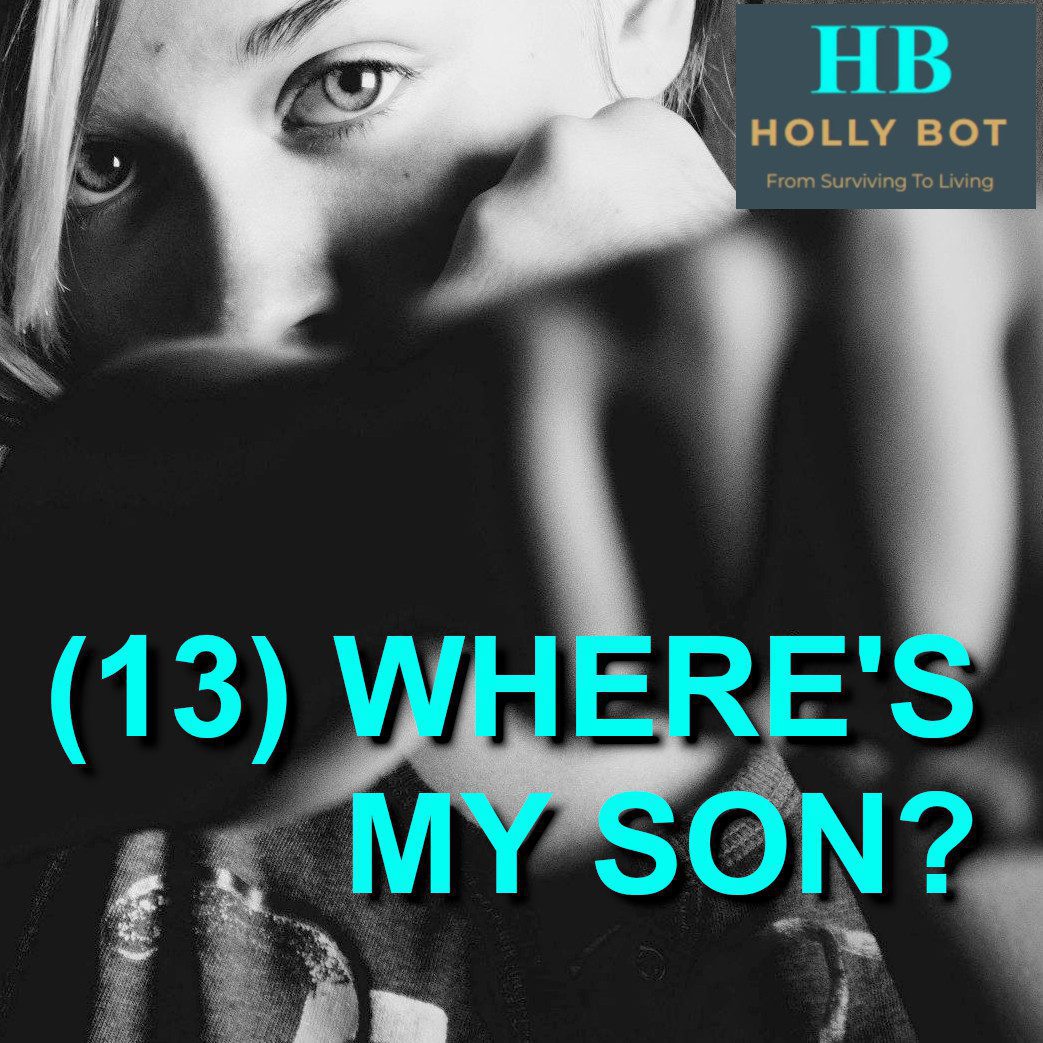(04) ORIENTATION (CHANGE, SHOCK & AWE, SUICIDE WATCH)
Description
Discover extra content in the blog post – ORIENTATION!
In March 2011 I entered prison and was placed in an orientation class. After 2 weeks I was given a job and prison life began. Life outside of prison continued for my family as well, and as I sought to redefine my role as a mom of 5 children I would also experience the loss of my grandmother.
I share my struggles with depression and how strict prison rules and challenging prison personalities affected me my first year. Are you overwhelmed? Are you experiencing a lot of changes in your life? Do you need strength to get through? I discuss steps we can take today to see us through to tomorrow.
TRANSCRIPT
I had believed I was a good person, but I sought to improve. Can you relate? I struggled with serious depression, making stability and holding a job challenging. I felt the weight of other people’s expectations. In prison I tried adjusting to a new normal, but I would learn entering prison wasn’t rock bottom. Life can get even worse. What does life look like before transformation? How can change happen for you? This is ORIENTATION (CHANGE, SHOCK & AWE, SUICIDE WATCH).
I’ve mentioned before that I didn’t realize I needed to change. What do I mean? I believed myself to be a good person or at least a person who understood what good is, even if I couldn’t do it consistently. If I could tell you what is right, doesn’t that make me …right?
Do you think of yourself as a good person? If you know what’s right, then are you right, even if you don’t do the right thing?
I had always been interested, though, in improving myself and my life. I didn’t need to change my beliefs; I wanted the skills to perform well!
One of my biggest struggles began in my teen years. I began to suffer from serious depression. I felt disinterested in things that gave other people joy. I was easily irritated.In a 2016 Psychology Today article by Gregg Henriques Ph.D. called The Behavioral Shutdown Theory of Depression, Dr. Henriques does an excellent job of explaining this enigma. He describes depression as a defensive strategy. If one sees little return on their behavioral or emotional investment eventually, they’ll lack the desire to expend that effort. In short – why do things that don’t work?
Medication helped, but it wasn’t a cure. I agonized about my failure to do things I saw people do every day. I was just barely surviving, even with meds. Eventually I was prescribed extremely high doses of anti-psychotics, anti-depressants and mood stabilizers. I believed my depression symptoms said ugly things about me and made me unlikable (or they would if people knew about them. I worked hard to rid myself of these symptoms and hide them. Fake it until you make it was a motto I lived by.
Does this sound familiar? You are not alone, and there is hope!
On my second day in prison, I was placed in an orientation class lasting 2 weeks. We were called R&O’s. One purpose of this class is to teach the rules and consequences of breaking the rules, consequences like LOPs (Loss of Privileges), DLOPs (Discipline Loss of Privileges), seg time (Solitary confinement), and UI (Unintended Idle). I had just become a guest of Acronym city. Nearby was Nickname village, Slang hamlet, Lingo settlement, and Jargon township.
Every inmate wears an OID badge. OID numbers are assigned the first time one is ever incarcerated. It never ever changes, even if one leaves prison and comes back for another crime. OID numbers tell a story- they tell you who’s new, who’s not, and who’s back.
On my second day of orientation a new R&O arrived named Ashley. Curiously her OID was slightly lower than mine, telling me she had been here a little longer than me, a week or so. Ashley looked to be about 20 years old, with long, light brown hair and sticks for arms and legs. Her skin was an olive-tan color nearly matching her hair. Most notably, she resembled my youngest son Tim to such a degree it bruised yet comforted my heart. She looked like his mother more than I did. I wondered why she was just now arriving at orientation.
Class started after breakfast and ended at 3 p.m. Our evenings and weekends were free. In our free time I longed to vanish to my room or call my children. As I made a get away from the dayroom, women behind me slapped themselves into chairs and wondered what to do with the rest of their day. I often heard Ashley call plaintively, “Does anyone want to play a game?”
The usual answer was no. Ashley’s outstretched, pleading arms would droop, then hugging herself Ashley’s imploring expression would change to a sorrowful, lonely one. This, too, reminded me of my youngest son Tim – he often begged his older brothers to play with him.I couldn’t take it; it was too pitiful. I wanted to hide in my room overwhelmed, but this was too much.
After our third day of class I remained in the dayroom to socialize. Ashley once again hopefully asked if anyone would like to play a game. She looked at each of us expectantly, waiting. Over the days her optimism had quietly faded from excitement to disappointment. I really didn’t feel like playing a game. She looked at each of us in turn, reading the answer in our averted eyes and silence. Her face began to fall. I took a deep breath, “I’ll play with you. What do you want to play?”
Surprise widened her eyes before they crinkled. She smiled, pulled her arms wide and leaned forward towards the table. “That’s great! I don’t care what we play. If it passes the time.” This was the beginning of our friendship.
As the days passed, she explained the mystery of her lower OID number and late arrival at orientation. When arriving at prison she had refused to speak at all. To anyone. For days. She was placed on suicide watch until she would talk. I later learned this is common. The trauma of arriving at prison can manifest in many ways.
In class my mind wandered. In the evenings I called my kids. I still felt present in their lives, as if this was a temporary arrangement. I would eagerly call to assure myself they were not just safe but behaving. “Moooom!” Lukas would bellyache on the phone, “Timmy is poking at Vivianne!” Screaming and arguing could be heard in the background.
“Put your brother on the phone,” I’d instruct. A clatter of the phone would follow, accompanied by stomping feet and the echo of Luke’s muffled voice somewhere nearby relaying the message, “Mom wants to talk to you….TIM!” Another clatter as the phone exchanged hands and I heard Timmy say, “Hi Mom,” with a hangdog note. Vivi continued to scream somewhere in the house.
“Tim? Have you been poking your sister?” I queried. I told them both to go to their rooms for a well-deserved break from each other. Then Tommy, my 10-year-old, picked up the phone. His little boy voice shook with loneliness and frustration as he described problems I couldn’t solve so easily, problems at school, problems with friends. I felt near tears, my heart heavy. Trying to soothe him I choked out, “I’m still here, Tommy! It’s not like I died!” In stunned silence we both listened to the words echo. it felt like I had just died. Tommy sobbed.
Later I spoke with Vivi. I had a plan for our talk. So did she. They were not the same. She had visited me when I was in county jail, but then I’d been released on bail. She thought those three months were my punishment. Why was I back in ‘jail’? That’s what she wanted to talk about. I, on the other hand, wished to apologize for oh, about a hundred different things.
Once on the phone I wasted no time apologizing. I started with being in prison. In her little girl-turned stern lecturer voice she scolded, “Yes mommy, but you keep doing it!” I barked a startled laugh. Then I explained better the situation. Soothed, Vivi was happy to talk about her day and learn more about mine. I told her I was going outside with friends to play after I finished with our phone call.
Once again, her tone of voice changed. Even at such an early age she must have found this an implausible prison activity. She challenged me, “No you’re not.” I insisted I was. She responded in her best grown-up, threatening voice, “If you’re going to continue to lie to me, I’m going to end this call!” Once again, I burst into shocked, delighted laughter.
Alone in my room later I would revisit my past with longing. Raising five children can be chaotic and busy, challenging. From the quiet solitude of prison, however, ordinary moments from my past took on a poignancy never felt before. What I wouldn’t give now for five minutes of my past life at the dinner table on an ordinary day! I yearned to tell one more bedtime story. I longed to push someone on a swing a few more times. I ached with loss. I cried for what would never be. I hated myself. I was angry and hurting.
After orientation graduation we were assigned a job and moved out of Broker. On a Thursday morning, I heard my name called over the PA system, “Aho, Staff Desk…..Ah
























